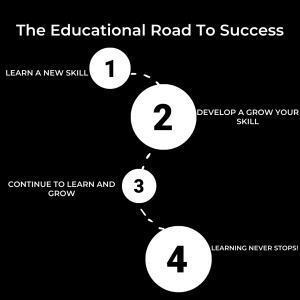Efficient Study Tips for College Students
As a college student, you’re likely juggling your schoolwork, extracurricular activities, part-time job, and social life. Finding time to study for your courses can be challenging, but learning study habits can benefit you in the long run. Preparing to study can help you learn better, stay on track, and get better grades. The key to success in school is preparation. That means getting a head start on your studies by starting as early as possible. Research indicates that students who study at least 15 minutes a day for 5 days each week can increase their cumulative GPA by 1.67 points! Read through our basic study tips, and start with 5 of the above tips. They’ll help you get the most out of your academic experience.
Study tips for college students are essential to maximizing your time and your grades. However, it is also important to learn how to study efficiently. There are many study tips out there, but for some, it is best to keep it simple.
Studying for finals can be a lot of work, so it’s important to know how to study effectively and efficiently. Avoid cramming and limit the number of distractions around you. Be sure to use your time wisely. Here are a few study tips to help you stay focused and on top of your work.
Study Tips for College Students
Change your surroundings. You can’t go to the coffee shop or the café with social distancing rules.
If your life involves going to coffee shops or cafes, then this could be an overwhelming and difficult thing to do. Suppose you’re like me and your social life revolves around going to coffee shops (and getting takeout, ordering delivery, and drinking your lattes/cappuccinos/lattes in bed). In that case, this could be a difficult thing to do. But it’s possible to make small changes to your daily routine while maintaining your sanity and social life.
Develop a daily routine.
Developing a daily routine can help you keep your life on track and not feel as lost. If you’ve recently moved to a new city, for example, and want to feel more at home, creating a list of daily goals will help you feel more in control and like you’re accomplishing something. That way, when you get home, you can unwind and feel like you’ve accomplished something.
Study with friends.
Studying with friends is a great way to get through the more difficult parts of your coursework. Not only can it help you to feel less stressed, but it can also give you a new perspective on what you’re learning. A study by the University of Chicago found that students who did group study sessions showed higher test scores than students who studied alone.
The study also found that groups had lower stress levels than individual students since students tend to feel less stressed in groups. And, since the groups share the burden of the work, they can support each other-and they tend to take more breaks than individuals.
Create a super study space.
Home is where your favorite people are, so when it’s time to study, make your home your study space. Begin by creating a conducive atmosphere. Do your best to eliminate distractions, such as pets and family members. Put away all cell phones and cell phone chargers. Unplug all appliances, such as TVs, stereos, and computers. Minimize sounds. Reduce the glare in your study space. Dedicate a space in your home to study. Label the area with your supplies. Arrange your room in a way that maximizes efficiency.
Review material before each online class.
Success in online classes requires more than just the ability to access the course material; it also requires you to prepare adequately for each class. You can achieve this by closely following the syllabus and thoroughly reading the mentioned course materials.
Additionally, there are several platforms and resources available online that you can use to achieve your academic goals. If you happen to stumble upon any valuable resources, such as key points in a document or PowerPoint presentation that enhance your understanding of the subject matter, consider using Snip & Float’s optimized snipping tool (or a similar alternative) to take a screenshot and store this information. This way, you can use it as a reference whenever you want to revisit the topic.
Keep in mind, it’s also crucial to take note of any questions you may have and revisit the syllabus before the first class session. This approach will prevent you from asking questions about information you’ve already covered in your studies.
Prioritize your work.
Whether we’re busy juggling work, family, and friends or trying to juggle our to-do lists, we often forget to put our priorities first. While it’s easy to let things slide, it’s important to remember what you’re working on and trying to accomplish. Otherwise, you risk overextending yourself and never getting anything done.
As a college student, you’ll be spending lots of time studying for tests, and it’s extremely important to make sure you study smart, not hard. The unfortunate truth is that you’ll be studying a lot in school. The good news is that studying doesn’t have to be painful. The goal is to learn the information, and it’s important to do so efficiently-not to waste valuable time.


